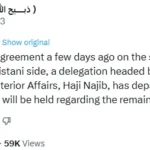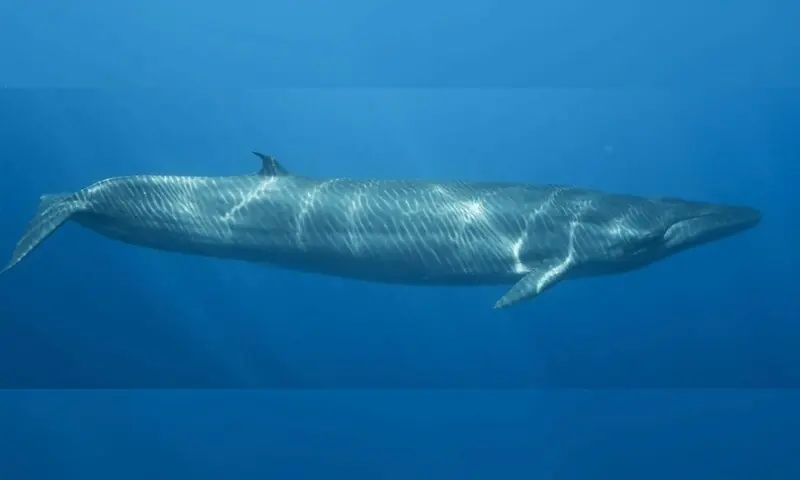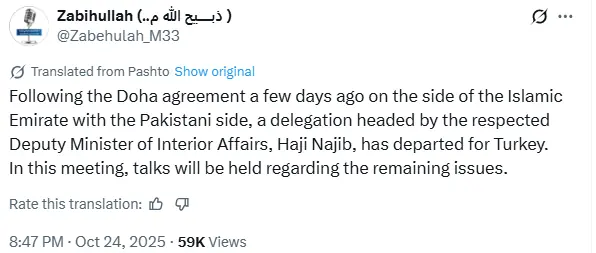In a rare sighting, four Bryde’s whales have been spotted off the coast of Gwadar, according to the World Wildlife Fund-Pakistan (WWF-P).
In a post on
“The whales were sighted by a fishing boat captained by Amir Dad Karim, who noticed movement in the calm sea about 5 kilometers north of their area of operation. Upon approaching, they found a pod of baleen whales, later identified as Bryde’s whales, probably moving towards coastal waters to feed.”
The organization said Bryde’s whale (Balaenoptera brydei) is one of three species of baleen whale known in Pakistani waters (the other two are the blue whale and the Arabian humpback whale), adding that it lives in warm, temperate oceans and feeds mainly on schools of fish such as sardines, anchovies and mackerel, which are abundant along the coast of the country.
He said the species was listed as “data deficient” on the International Union for Conservation of Nature’s Red List and remained understudied globally.
“Like all other cetaceans, they are protected by Pakistan’s wildlife, fisheries and international trade laws.”
“These rare sightings remind us of the rich marine life along Pakistan’s coast and the importance of protecting it for generations to come,” he said.
WWF-Pakistan has strengthened its efforts to conserve marine mammals by developing a national database of cetaceans (whales, dolphins and porpoises) through the innovative citizen science initiative that engages fishermen, scientists and the public in reporting marine life sightings along the country’s coast.
“Citizen science allows us to collect vital information on marine species that would otherwise go unrecorded,” said Muhammad Moazzam Khan, technical advisor at WWF-Pakistan. “This recent sighting is a promising indicator of a healthy marine food web.”
Pakistani waters have seen several sightings of Bryde’s whales in recent years, although some ended tragically.
The last recorded incident was in November 2023, when a dead Bryde’s whale was found near Jiwani, near the Pakistan-Iran border. Another was stranded in the same region in May 2023.
Rab Nawaz, senior director of biodiversity at WWF-Pakistan, praised the active participation of coastal communities in supporting conservation efforts.
“Fishermen in Sindh and Balochistan have played an essential role in sharing information about marine mammals and adapting fishing methods to prevent whales and dolphins from becoming entangled. Their collaboration demonstrates the power of local knowledge in protecting endangered species,” he said.
Founded in 1970, WWF-Pakistan is the country’s largest environmental organization, with more than 300 employees working in 32 offices. The organisation’s ongoing marine conservation projects aim to protect biodiversity, promote sustainable fishing practices and ensure the long-term health of Pakistan’s coastal and ocean ecosystems.








